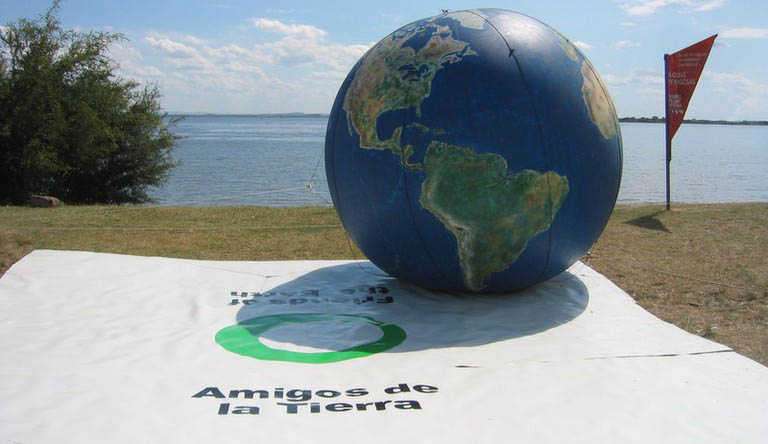Bali (Indonesia)/Brussels (Belgium), December 15 – The United Nations climate talks in Bali reached an agreement today, but Friends of the Earth Europe has expressed disappointment at the weak content, following many attempts to derail the talks by the United States, Japan and Canada.
But the European Union and key developing countries stood their ground on the need to include an agreement that emissions cuts should be in the range of 25-40 percent, as demanded by climate scientists. This provides some indication of ambition but still leaves a lot of work to be done.
The United States and Japanese governments, supported by Canada, shot down strong proposals from developing countries on adaptation, technology transfer, and reduced deforestation. The rest of the industrialised countries failed to reign in their obstructive behaviour.
Friends of the Earth Europe climate campaigner Sonja Meister said:
“The EU woke up too late in these negotiations – they confronted the Bush administration and stayed firm in keeping up the range of emission targets, but they should have done so much sooner and stronger. To bring back the trust and build up much needed momentum, the EU should clearly isolate the Bush administration, take real action at home and accept its fair share of the responsibility for financing the adaptation and mitigation costs of climate change in developing countries.”
Friends of the Earth Europe has called for the EU to step up its commitment and publicly agree to unconditionally reduce its emissions by at least 30 percent by 2020, through domestic action alone. On top of this, huge additional obligations will be needed from the EU and other industrialised countries. [1]
The Bali deal does include an agreement on the Adaptation Fund which will begin to deliver funds for developing countries to deal with the impacts of climate change, and an agreement to review how industrialised countries will meet emissions reduction targets in the second commitment period of the Kyoto Protocol.
The limitations of the deal include:
-
Developing countries are obliged to provide verifiable reporting, but will not be given sufficient financial and capacity support to enable them to do so
-
Plantations could still be included the deforestation scheme, which would water down its impacts
“Governments have reached agreement on a way forward, but with little to guide them a long the way. Future talks will now face a serious uphill battle to reach a strong agreement by the end of 2009,” Ms Meister added.
Friends of the Earth International Chair Meena Raman said:
“Around the world millions of people are already suffering the effects of climate change. People outside the talks have sent a strong message demanding climate justice. This message must no longer fall on deaf ears. We only have two years to build on this weak outcome and develop a just deal which ensures tough action from industrialised countries and assistance for people in the developing world.”
***
NOTES
[1] The EU has previously committed to unilaterally cut their emissions by 20 percent by 2020, and by 30 percent if other industrialised countries are willing to do the same, and if developing countries take on adequate responsibilities. The 20 percent lies well below the scientifically needed range of 25-40 percent emission reductions for industrialised countries that were discussed in Bali. Even this may still lead to an increase in global temperatures of 2 – 2.4 degrees.
In this context, the current EU targets to reduce greenhouse gas emissions are inadequate. Therefore the EU must advocate emission reductions on the ambitious end of this range, and higher.






